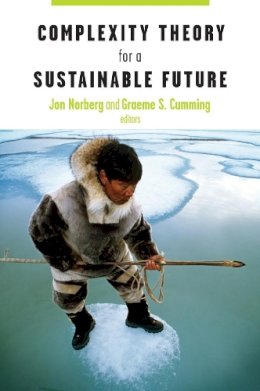
Stock image for illustration purposes only - book cover, edition or condition may vary.
Complexity Theory for a Sustainable Future
Norberg, Jon; Cumming, Graeme
€ 177.20
FREE Delivery in Ireland
Description for Complexity Theory for a Sustainable Future
Complexity theory reveals the many interactions between natural and social systems, providing a better understanding of the general principles that can help solve some of the most pressing environmental issues. This work bridges the gap between theoretical and applied perspectives in the management of complex adaptive systems. Series: Complexity in Ecological Systems. Num Pages: 312 pages, 16 illus; 7 tables. BIC Classification: PSAF. Category: (P) Professional & Vocational. Dimension: 229 x 152 x 20. Weight in Grams: 590.
Complexity theory illuminates the many interactions between natural and social systems, providing a better understanding of the general principles that can help solve some of today's most pressing environmental issues. Complexity theory was developed from key ideas in economics, physics, biology, and the social sciences and contributes to important new concepts for approaching issues of environmental sustainability such as resilience,...
Read moreProduct Details
Publication date
2008
Publisher
Columbia University Press United States
Number of pages
312
Condition
New
Series
Complexity in Ecological Systems
Number of Pages
312
Format
Hardback
Place of Publication
New York, United States
ISBN
9780231134606
SKU
V9780231134606
Shipping Time
Usually ships in 7 to 11 working days
Ref
99-1
About Norberg, Jon; Cumming, Graeme
Jon Norberg is assistant professor of systems ecology at Stockholm University and is affiliated as a researcher with the Stockholm Resilience Center. Coming from a background in ecology, Norberg has become more transdisciplinary, studying the role of social phenomena such as information sharing and trust building for resource management. He completed his post-doc at Princeton University with Simon Levin and...
Read moreReviews for Complexity Theory for a Sustainable Future
